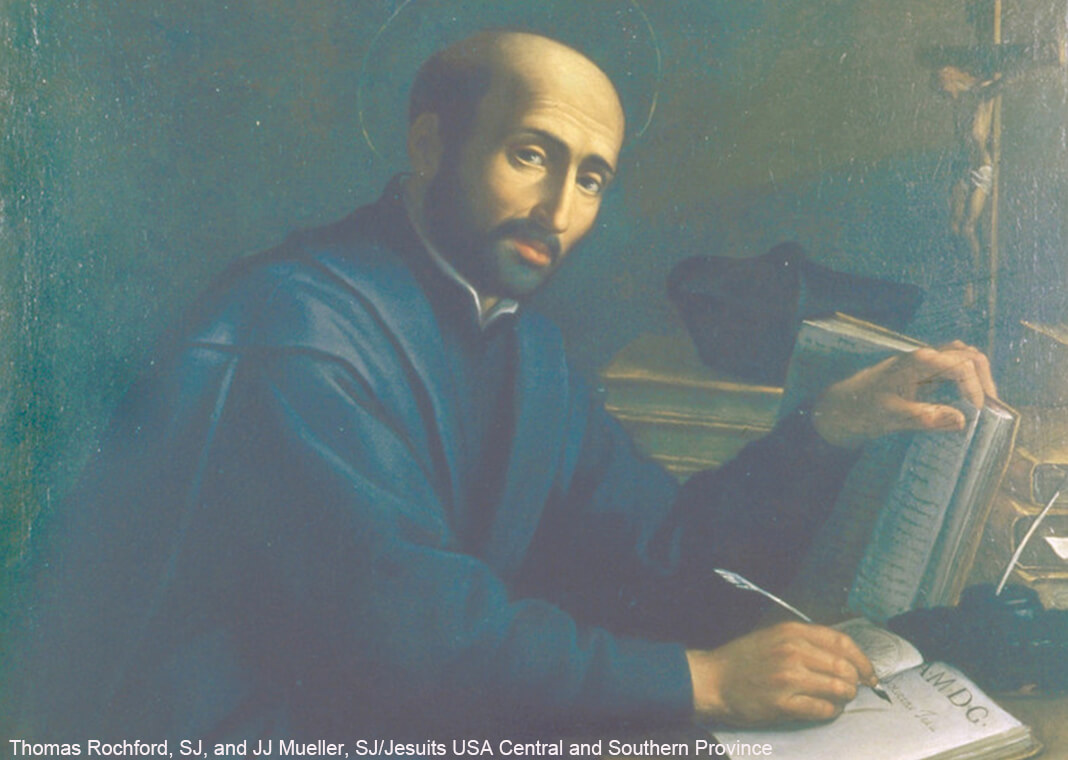
Over the summer, I have had the time to read some of the letters of St. Ignatius and to listen to a series of short lectures on the letters via the Center for Ignatian Spirituality at Boston College. Thanks to Fr. Barton Geger, SJ, for his excellent introductions to these letters. Something that has struck me as a theme of Ignatius’s letters is the way that Ignatius combines a grounded and focused spiritual practice with the development of concrete and practical skills. For example, in a 1551 letter to Jean Pelletier, Ignatius recommends self-care and the cultivation of prayer next to the need for Jesuits in formation to study, to practice their preaching, and even to look into how to acquire good land and to build up good relationships with the politicians of their day. Ignatian spirituality is often described as being “contemplative in action,” and this theme runs through many of Ignatius’s letters.
Four elements of the letters stand out to me:
- being grounded in our relationship with God;
- having friendships that support our spiritual and personal growth;
- cultivating practical skills;
- and then using our gifts and skills for the good of others, including those most marginalized.
What this looks like in our own individual lives might vary, but from Ignatius’s letters, a few key questions might arise:
- What daily practices of prayer help me to grow closer to God and more eager to use my gifts and talents for the greater glory of God?
- What are the friendships and relationships that encourage me and help me to grow in the work to which I am called? How do I cultivate those friendships? Which relationships bring me down and might be ones I want to distance myself from?
- What practical skills help me to live out my vocation? How can I continue to grow in cultivating these skills, whether I am new or experienced in these areas?
- Where do I give away my gifts to others? Given that the needs of the world are greater than my own resources of gifts and time, where can I, most practically, best serve others?
- What are the practical and concrete resources that I or my community need to be able to care for others and to build up the common good?
For me as a teacher, wife, and mother, I can answer these questions in a way that is particular to my own life and circumstances. I know that I am a better family member and teacher when I take time every day to pray; for me, praying the Examen, reading Scripture, and contemplating the beauty of creation help me to stay grounded in God. I try to connect regularly with other people who have a shared interest in spirituality and also in teaching and the pedagogy of formative education. Sometimes I can get bogged down in relationships that bring me down, and I have to remind myself to distance myself and instead pay attention to those that build me up. Connecting with others in prayer is central for me, as are friendships that involve a lot of personal sharing and laughter.
This past semester, I had to learn a whole new skill set as my class moved online and I had to consider how to bring the philosophy of cura personalis from the face-to-face classroom into the virtual one. Twenty-one years into teaching, I am still learning new skills and how to have a bit of a beginner’s mind again. Learning how to teach remotely involved practical matters: how to use new computer technology, how to set up lighting well, what the best room in my house is for classroom time when I am sharing the space of a small home with others. I have also tried to keep in mind who in my community is on the margins. How, for example, can I best personally support and provide referrals to students struggling with anxiety, or how can I find resources with the assistance of my library for those who struggle with book costs?
Every week, I try to discern which tasks among the many possibilities before me are the ones that are most necessary and use my gifts and talents well. I try to remember that I do not have to “do it all” and that part of humility is remembering that I am one part of a larger community of people all working together collaboratively. That discernment of what to do this week or this day is connected back to my time in prayer.
How would you answer the questions inspired by Ignatius’s letters? What practices, friendships, and learning sustain you? How do you use your gifts and talents for others?
